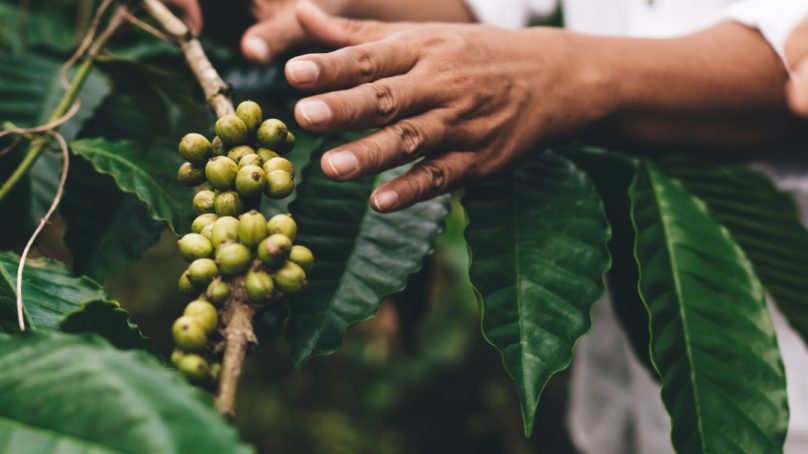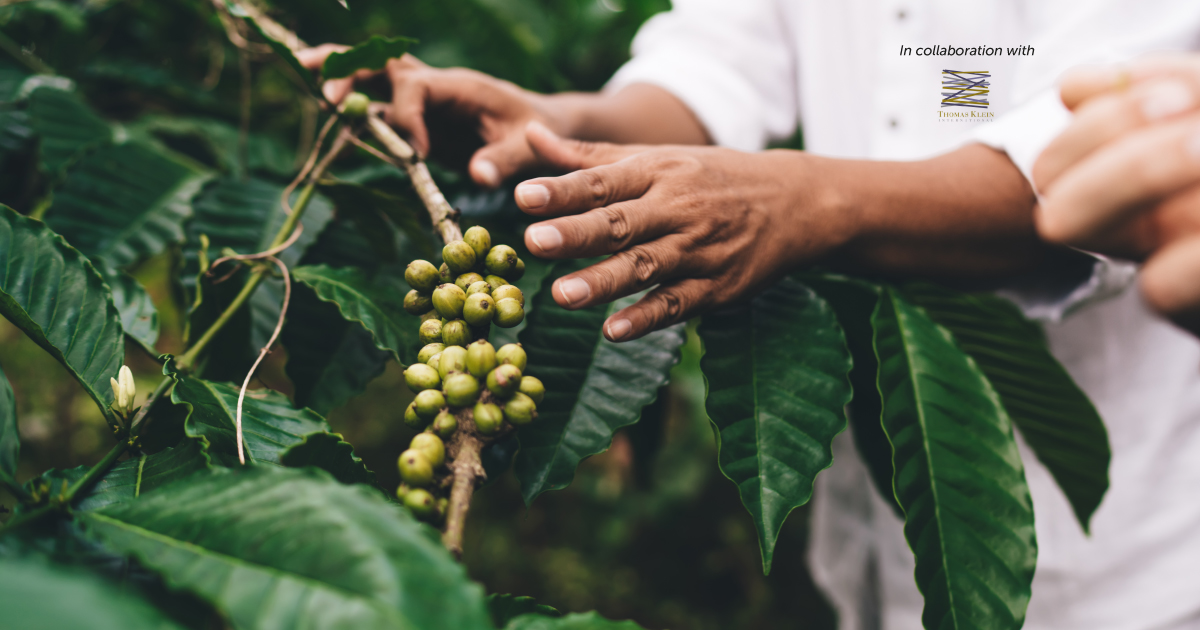
Coffee – a word that means a stock market commodity, a bean, a drink and a social event.
On average, over 2.25 billion cups of coffee are consumed daily throughout the world – that is 93.7 million cups every hour of every day. If one takes a moment to zoom out and think about how much coffee we are consuming, and how many coffee beans that involves, the numbers are impressive.
There are a total of 70 coffee-producing countries in the world, 50 of which export their beans. From these, the 10 major producers are Brazil, Vietnam, Columbia, Indonesia, Ethiopia, Uganda and Honduras.
The global coffee market was valued at approximately USD 134.85 billion in 2023. It is expected to continue growing at a CAGR of 6.4 percent between 2024 and 2032 to reach a value of USD 236.98 billion at the end of this forecast period.
A tale of two halves
The coffee industry is undoubtedly a lucrative one; however, the reality is less glamorous. The coffee value chain comprises four steps that can be split into two categories, each with its own sets of complications:
- labor-intensive: cultivating and processing, in labor-abundant countries capital intensive: roasting and branding, in northern hemisphere, industrialized countries.
- capital intensive: roasting and branding, in northern hemisphere, industrialized countries.
If we trace the journey of the coffee you are probably drinking while reading this article, the chances are that it begins in countries like Vietnam or Uganda. Here, farmers laboriously farm, cultivate and process the beans that find their way into your morning Americano or afternoon espresso in Europe or the Americas.
It’s crucial to recognize and bear in mind that coffee isn’t just a beverage, but a source of income for between 20 million and 50 million families worldwide. Astonishingly, smallholder farmers account for 60 percent of the world’s coffee production. Yet, despite their indispensable role, the uncomfortable truth is that half of these farming families grapple with poverty. In fact, one-quarter endure extreme poverty.
Challenging work, difficult conditions
Consider this; for every kilo of coffee beans harvested, most farmers receive a mere USD 2.20. Just think about that for a moment – a meager USD 2.20 in exchange for hours of intense labor, often endured amidst harsh weather conditions and in less-than-ideal safety environments.
To say that all coffee farmers are working in these conditions would be wrong. However, when the vast majority are getting the short end of the stick, it raises questions. The job of a coffee farmer is an unpredictable one, with challenges faced ranging from climate change and environmental degradation to price volatility.
Rising temperatures and unpredictable rainfall are altering coffee-plant growing conditions. These factors are contributing to decreased yields, with crops at higher risk from pests and diseases. Coffee farmers face increased production costs which, in turn, take them down the route of child labor. This downward spiral then continues, leading to lower attendance and attainment in education and, ultimately, generational deficiencies.
An at-source disconnect
Every stage of the coffee supply chain claims its portion of coffee’s value. From the hands of growers to traders, processors, exporters, roasters and retailers, each entity plays a role in shaping the journey of the coffee beans until they culminate in the brew poured into your coffee cup. However, for many smallholder farmers, there exists a profound disconnect. They often lack insight into where their coªee goes, the price it commands in the market and the identity of the end consumer.
This lack of transparency makes it difficult for smallholders to understand the value of what they’re creating and certainly limits their ability to fight for their living income. Meanwhile, others in the chain are making millions off this trade.
Welcome changes
On the positive side, consumer interest in ethical business practices is constantly increasing, sparked by the rise in popularity of specialty coffee and growing collective awareness around sustainability and transparency issues. Light is being shed on the malpractices taking place in key industries, including the coffee segment, which have been largely monopolized.
As a result, businesses and brands have started investing millions in key, targeted programs, amidst concern about their image in relation to climate change and fair trade. These initiatives are teaching farmers about sustainable and safe practices, as well as how to grow coffee in warmer climates and use soil management practices to alleviate the negative impacts of climate change on soil quality.
Finding long-term solutions
However, focusing solely on supporting individual farmers only provides a partial solution. Key players can drive more far-reaching improvements by investing in the broader communities where these farmers reside. By doing so, they will not only be addressing the immediate needs of agricultural producers, but also contributing to the overall development and prosperity of the entire community.
This approach acknowledges that sustainable and inclusive growth involves supporting entire communities and strengthening their social fabric. It recognizes that improving infrastructure and services will ultimately produce societies that are more resilient and able to thrive.
A sustainable supply chain
When we consider the coffee sector’s impact on climate change at each stage – from growing and transportation to processing and brewing – it quickly becomes clear that the situation is incredibly complex. Solutions must be focused on making the entire coffee supply chain more sustainable and fairer, rather than on simply increasing supply.
Finding sustainable solutions is crucial for future growth and longevity. Mitigating challenges without resorting to deforestation for expanding production is paramount. By embracing responsible practices, promoting transparency in the supply chain and supporting smallholder farmers, the industry can move toward a more equitable and environmentally conscious future. Only through collaborative eªorts and mindful strategies can we continue to thrive while preserving the ecosystems upon which we all depend.

Principal and managing director
Thomas Klein International
thomaskleingroup.com
@thomaskleingroup















